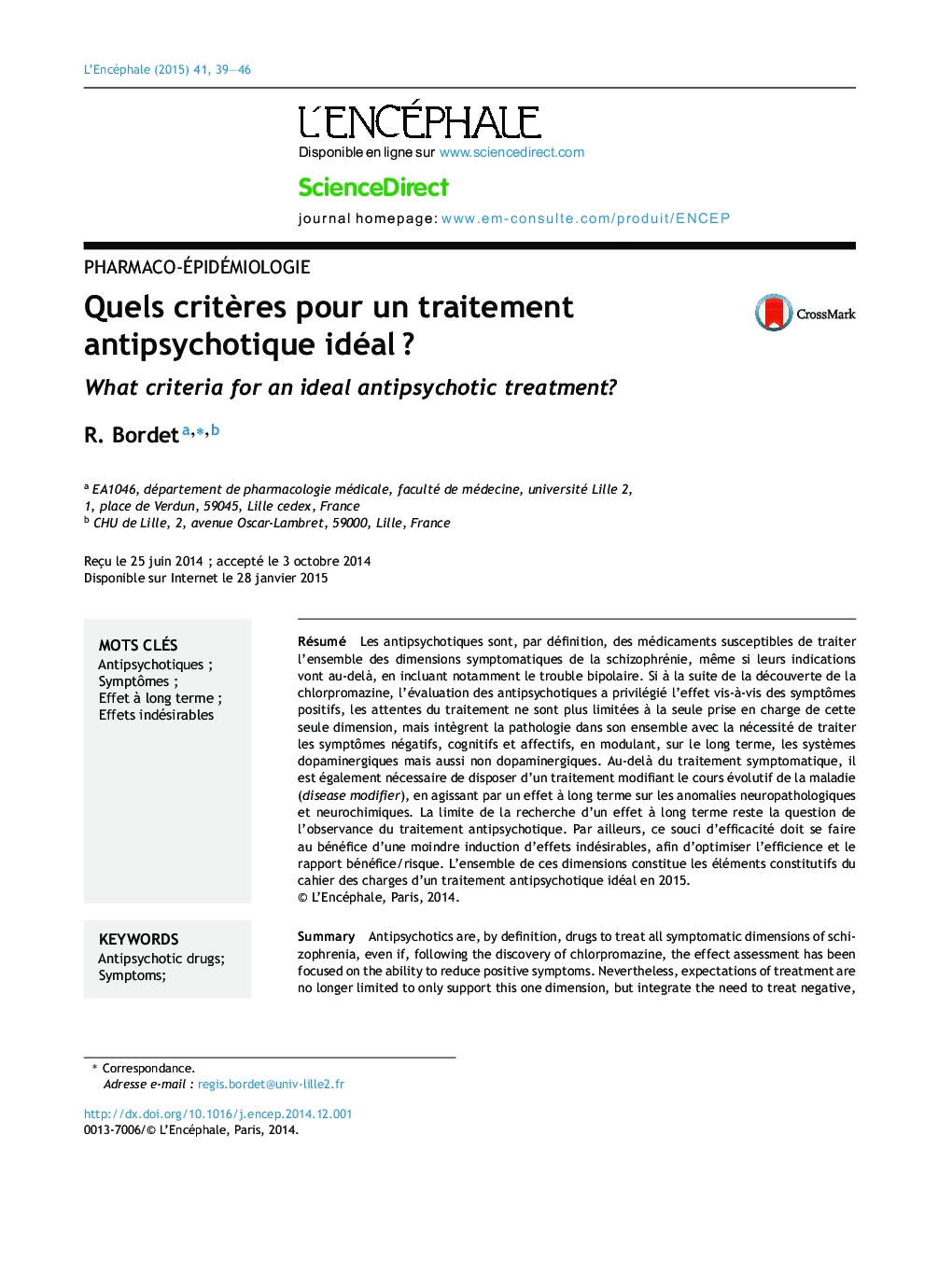| Article ID | Journal | Published Year | Pages | File Type |
|---|---|---|---|---|
| 4181544 | L'Encéphale | 2015 | 8 Pages |
Abstract
Antipsychotics are, by definition, drugs to treat all symptomatic dimensions of schizophrenia, even if, following the discovery of chlorpromazine, the effect assessment has been focused on the ability to reduce positive symptoms. Nevertheless, expectations of treatment are no longer limited to only support this one dimension, but integrate the need to treat negative, cognitive and affective symptoms, through long-term modulation of dopamine transmission but also non-dopaminergic pathways. Beyond symptomatic treatment, it is also necessary to have a treatment modifying the evolution course of the disease (disease modifier), acting by a long-term effect on neuropathological and neurochemical abnormalities. The limitation of long-term effect remains the issue of therapeutic observance. Moreover, this concern for efficiency should be at the cost of reduced induction of adverse effects to maximize the benefit/risk ratio. All these dimensions should the components to profile an ideal antipsychotic treatment in 2015.
Keywords
Related Topics
Health Sciences
Medicine and Dentistry
Psychiatry and Mental Health
Authors
R. Bordet,
